The content of the article
Uterine bleeding is a long and plentiful discharge of blood from the uterus. Uterine bleeding is a serious symptom that may indicate not only the presence of gynecological diseases. With this type of bleeding, it is very important to give the woman first aid in time and diagnose the true cause of the bleeding.
Menstruation is considered normal uterine bleeding, which should occur cyclically, at approximately equal intervals. Usually these intervals are about 25-30 days. Menstrual flow should not last more than 6 days, otherwise it is considered a pathology. For any menstrual irregularities, you must consult a doctor. An experienced specialist can suppress the development of the disease in the bud, without waiting for its peak, when the consequences are already irreversible.
Causes of uterine bleeding
Where does uterine bleeding come from and what is its cause, let's try to figure it out.
- One of the most common causes of uterine bleeding is a variety of gynecological diseases. These are endometriosis, adenomysis, fibroids, cyst ruptures, various uterine injuries, tumors of all kinds and other diseases of the uterus and appendages.
- Often, uterine bleeding is associated with the wrong course of pregnancy and childbirth. Blood is released in large quantities during ectopic pregnancy and various fetal pathologies. Uterine bleeding occurs with any injuries during labor, during placenta previa and its detachment, as well as with an incorrectly performed cesarean section. If parts of the fetus or placental residues remain in the uterus after an abortion, this can lead to inflammatory processes and cause bleeding.
- Uterine bleeding can also be a consequence of non-gynecological diseases. These include hypertension, atherosclerosis, thyroid dysfunction, diseases associated with blood coagulation. Uterine bleeding can also be caused by prolapse of the urethra.
- Some infectious diseases also cause uterine bleeding - measles, sepsis, typhoid fever, and flu.
- Inflammatory diseases - vaginitis, endometritis, erosion, cervicitis, endocervicosis can also cause heavy bleeding.
Symptoms of Uterine Bleeding
It is very important to understand whether the bleeding is normal or pathological. If the volume of secreted blood has increased dramatically and hygiene products simply can not cope - this is a good reason for immediately contacting a doctor. Normally, about 60-80 ml of blood is released during menstruation. If you have to change pads or tampons every one and a half to two hours, then the bleeding is quite plentiful.
If the bleeding lasts more than 6 days, this is also a deviation from the norm. Uterine bleeding after sex, several “periods” per month, bleeding after menopause, as well as thick and viscous discharge can be a symptom of a serious illness.
Side effects may occur due to bleeding in a woman - iron deficiency anemia, decreased hemoglobin, dizziness, fever, shortness of breath, pallor. Often the patient feels overwhelmed and weak, and her appetite is lost.
First aid for uterine bleeding
Uterine bleeding is not a broken knee or runny nose.In this case, self-medication is very dangerous. If you or your loved one has a uterine bleeding, you should immediately consult a doctor. If the patient’s condition does not allow to go to a medical institution, it is necessary to call an ambulance and provide first aid to the patient.
No way!
- With uterine bleeding, you can not put a heating pad or other warming objects on the stomach. This can speed up inflammation.
- Do not douche the vagina - this can aggravate bleeding.
- You should not take a bath, especially hot. And also, you can not take any medicine without a doctor’s advice.
While the ambulance is on the way, the patient needs to lie and not make sudden movements. Provide the patient with bed rest and complete rest. Under your feet you need to put a roller or pillow. Put something cold on your lower abdomen, such as ice from a freezer or frozen meat that has previously been wrapped in cloth. This will narrow the blood vessels and reduce bleeding slightly. It is necessary to provide the patient with a plentiful drink, because with blood a person loses a lot of fluid. Tea with sugar will replenish glucose stores in the body, and a rosehip decoction will increase blood coagulation.
Types and treatment of uterine bleeding relative to the age of the patient
- Bleeding from the uterus can be in a newborn girl in the first weeks of life. This is absolutely normal and is due to a change in the hormonal background. Such bleeding does not require treatment.
- Uterine bleeding can begin before puberty (in the first 10 years of life). Such bleeding is associated with inflammation and swelling of the ovaries, which begin to produce increased amounts of hormones. Often, the girl's parents take this for early puberty, but this is not so. In this case, you should contact a specialist and undergo an examination.
- Uterine bleeding that occurs during puberty of a girl (12-15 years old) is called juvenile. But this is not menstruation, but bleeding - you need to be able to distinguish it. The cause of uterine bleeding at this age can be infections, viral diseases, frequent colds, physical activity, improper and unbalanced nutrition, and nervous shocks. To treat such bleeding, it is important to identify the true cause of the imbalance.
- The most common uterine bleeding occurs in reproductive age. During puberty women uterine bleeding can be triggered by various causes. Bleeding can open due to infections, as well as due to the use of improperly selected oral contraceptives. Bleeding is a frequent consequence of abortion and miscarriage. During pregnancy, bleeding can open from placenta previa, cystic drift. Bleeding during the birth process is most dangerous, as a woman can lose a lot of blood. In the postpartum period, bleeding can open due to residues in the uterus of pieces of the placenta.
- Uterine bleeding can occur during menopause, and this is a fairly common occurrence. Bleeding at a young age can be a consequence of hormonal changes, but sometimes it is a symptom of various tumors, including malignant ones. Therefore, it is very important to consult a doctor on time - oncological diseases are perfectly treated in the early stages of development. This is especially true of the postmenopausal period, when menstruation has completely stopped.
How to stop uterine bleeding with medication
Only a doctor can prescribe medications that can stop bleeding. We describe the main medications that are used for heavy bleeding, and also consider the principles of their action.
- Ethamsylate or Dicinon. These drugs have similar exposure principles. This medicine promotes the production of thromboplastin and affects the permeability of blood vessels. This leads to increased blood coagulation and significantly reduces bleeding. The drug is administered intramuscularly.
- Aminocaproic acid. This drug prevents the spontaneous dissolution of blood clots, which helps to gradually reduce the intensity of bleeding. To stop uterine bleeding, the medicine can be used under strict medical supervision. Aminocaproic acid is taken orally or intravenously.
- Oxytocin. This is a well-known hormonal medicine that is used during childbirth to stimulate uterine muscle contractions. Oxytocin is administered intravenously with glucose, and bleeding stops due to contractions in muscle tone. However, taking this medication should be observed with extreme caution - he has many contraindications.
- Vikasol (Vitamin K). A lack of vitamin K leads to poor blood coagulability, so Vikasol is used to make up for the lack of this vitamin. But this medicine is difficult to use in emergency measures to stop bleeding, because the effect of taking the drug occurs no earlier than 10 hours. Vikasol is often prescribed for people who are prone to heavy bleeding.
- Calcium gluconate. If the body lacks calcium, vascular permeability increases, blood coagulation worsens. Calcium gluconate is not an emergency measure to stop uterine bleeding, but it can be used as a medicine to improve the condition of blood vessels.
Folk recipes for stopping uterine bleeding
Home medicine recipes can be used as an additional measure to stop uterine bleeding. Many medicinal herbs have powerful anti-inflammatory and hemostatic properties. To prepare a decoction, you need to take a few tablespoons of the plant, pour them into a jar, pour cool boiling water and cover tightly.
Grass can be taken fresh or dried. If you are brewing berries or bark, you need to use a thermos to keep the broth longer longer. When the broth is sufficiently infused, it must be filtered and taken several times a day in half a glass. Here is a list of herbs and plants that can help with heavy uterine bleeding.
- Leaves and stalks of nettle;
- Viburnum bark;
- Water pepper;
- Yarrow;
- Horsetail;
- Shepherd's bag;
- Highlander is foul;
- Rhodiola rosea;
- Strawberry root root (tincture or liquid extract);
- Peppermint;
- Cucumber lashes;
- Raspberry leaves
In case of uterine bleeding, it is recommended to drink rowan juice diluted with mint tea. You also need to cook unripe oranges and eat them with the peel. Unripe boiled orange has a pronounced astringent effect, which helps to stop uterine bleeding.
Prevention of uterine bleeding
Uterine bleeding is a serious symptom that you need to respond to immediately. In order not to encounter such a problem as uterine bleeding, you need to visit a gynecologist every six months. Such preventive measures by the doctor will help you detect the disease in its infancy. After all, as you know, the treatment of any disease at an early stage of its development is most effective.
To improve the hormonal background, you need to improve the quality of your life. Eat right and balanced. Give preference to natural products - more vegetables and fruits, meat, cereals. Avoid fried, fatty, spicy, salty, and sugary foods.
Go in for sports and find any opportunities for physical activity.Avoid various stressful situations or try to relate to them easier. Observe the regime of work and rest, do not overload your body.
As a drug prophylaxis after heavy bleeding, the doctor usually prescribes a complex of restorative drugs. It includes anti-inflammatory drugs, hemostatic drugs, vitamins, sedative, as well as long-term treatment with hormones.
Identifying the true cause of uterine bleeding, quick response and proper treatment will save you from this problem forever. Watch your body, and then your female health will respond with gratitude.


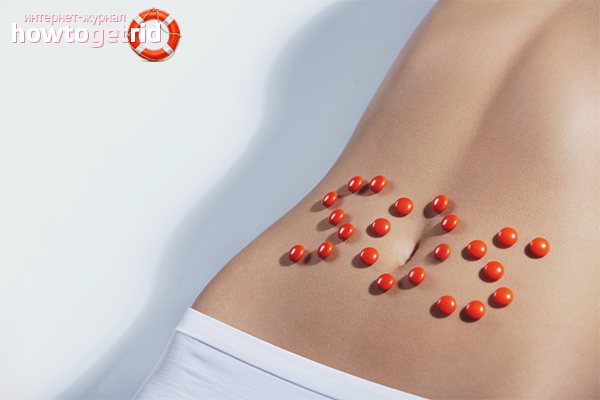
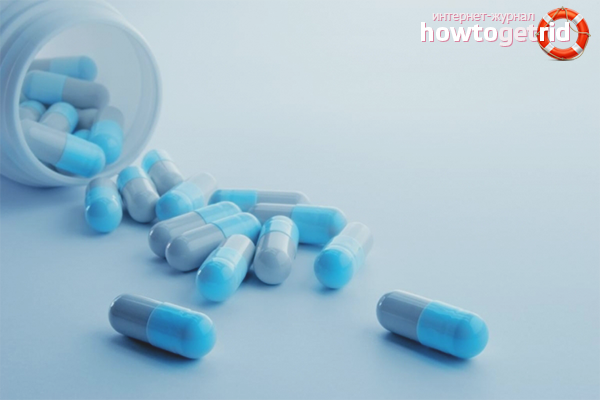
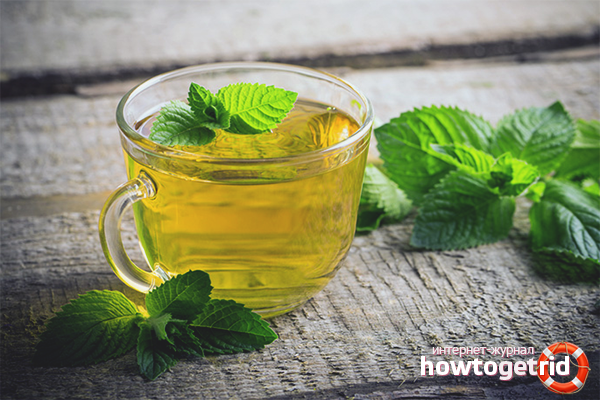
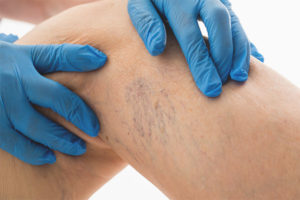
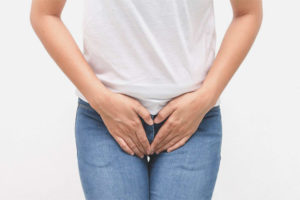
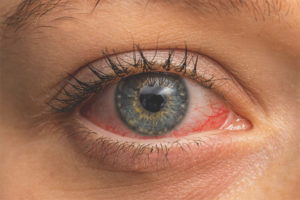



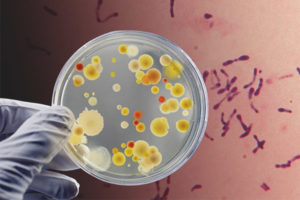

Submit